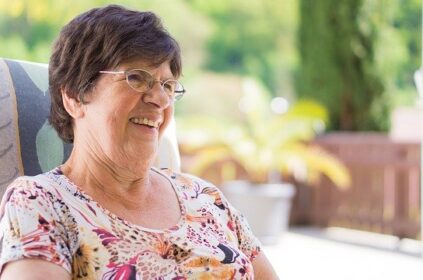In an earlier article, we discussed the traits of complex ADL’s and the importance of determining the function of these tasks in the elderly. When the ability to perform these tasks on a daily basis begins to slip, then it may be time to consider assisted living for elderly.
However, there is another option that may be available in some areas. It’s called “Aging in Place” co-ops. What are the benefits of each, and which should you consider for an aging person that needs a little bit of help?
Assisted living for elderly provides daily support of those complex ADL’s (activities of daily living) which include some of the following:
- Shopping
- Cooking
- Cleaning
- Communicating
- Taking medications properly
- Following directions
- Personal hygiene
There are various reasons that an elderly person would lose the ability to perform these tasks and then consider assisted living for elderly. There could be physical changes such as a loss of strength, perceptual changes such as not seeing or hearing as well as before, cognitive changes in speed or ability to multi-task, or psychological changes.
Assisted living for elderly doesn’t provide skilled nursing care found in a nursing home, but they do provide:
- Private or semiprivate rooms with attached baths
- Shared living and dining areas with other residents
- Round the clock staff to help with many ADL’s
- Help with administering medications
- Transportation
- Social Activities
- Room and Board
Very often, these are the basic functions an elderly person living independently has trouble with and their family has concerns over.
Another option to assisted living for elderly is a co-op situation. These are most often non-profit organizations run by either a paid staff or volunteers who provide a network of services or local activities. The idea is to allow the elderly person to stay in their own home, yet get some cost efficient help with some of those daily tasks that have become difficult.
Information on the Aging in Place program and its philosophy can be found on their website at www.aipsupport.org.
Each group may be set up a little bit differently as to what services are provided. There is often a yearly fee for membership. Some of the services provided are both social and practical.
For example, they may provide monthly social activities, outings, entertainment or shopping trips so the elder member stays engaged in the outside world, creating a bond and avoiding a sense of isolation.
Other services may come in the form of daily or weekly volunteers to help around the person’s home. This could mean light housekeeping, laundry, yard or home maintenance, or other like services.
In a close community, this could be a viable and cost effective option to assisted living for elderly. With a good group, run by volunteers who you are comfortable with, you could find just the right amount of assistance from some complex tasks so that the person can stay in their own home a bit longer.
Deciding which option is best, assisted living for elderly or an Aging in place co-op, depends on the needs of the elderly individual, the level of safety in their home (for example, if stairs are difficult to maneuver can the environment be altered so they don’t have to climb stairs), and which option is available in your area. Do your research. Based on your intuition and the information gathered, decide which is best at this moment.
Ask yourself these questions: Does the co-op or the assisted living home provide the most consistent and reliable services that are needed? What’s the reputation?
You may choose a co-op if light housekeeping and social activity is desired; however, you may be more comfortable with assisted living for personal hygiene and medication concerns. You may need to choose something else later, and that’s okay. The aging process is a changing journey. Be ready for the changes.






